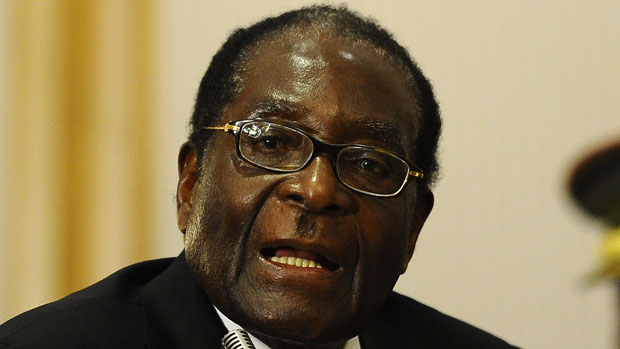Zimbabwe: why the EU is easing sanctions
Robert Mugabe is offered an economic 'olive branch' – but what exactly is going on in Zimbabwe?

A free daily email with the biggest news stories of the day – and the best features from TheWeek.com
You are now subscribed
Your newsletter sign-up was successful
The European Union has announced that it will resume sending aid to Zimbabwe, but travel bans for Robert Mugabe and his wife will remain in effect.
The £174 million "olive branch" will be channelled into developing the country's health and agricultural sectors. According to The Guardian, it serves as a quiet admission that over a decade of EU sanctions have failed.
If certain conditions are met, the deal could also lead to the resumption of much-needed direct support for the country's budget.
The Week
Escape your echo chamber. Get the facts behind the news, plus analysis from multiple perspectives.

Sign up for The Week's Free Newsletters
From our morning news briefing to a weekly Good News Newsletter, get the best of The Week delivered directly to your inbox.
From our morning news briefing to a weekly Good News Newsletter, get the best of The Week delivered directly to your inbox.
As another chapter in Zimbabwe's troubled history begins, how do things stand in the former bread basket of Africa?
Politics
As Mugabe prepares to celebrate his 91st birthday, the behind-the-scenes race to determine his successor continues. Last year, former vice president Joice Mujuru was firmly tipped as the favourite, but was suddenly fired in a major cabinet purge amid accusations that she was plotting to overthrow Mugabe.
One of the most feared men in Zimbabwe has since assumed her position and is believed to be ready and waiting to take over. Emmerson "Crocodile" Mnangagwa is accused of masterminding the massacre of thousands of civilians in Matabeleland in the 1980s.
A free daily email with the biggest news stories of the day – and the best features from TheWeek.com
He once threatened to "shorten the stay on earth" of any "cockroaches" who opposed Mr Mugabe and to burn "all the villages infested with dissidents," according to the Daily Telegraph. After four decades of loyal service to Mugabe, he said his promotion was proof that the "revolution has a way of strengthening itself".
Mnangagwa, a former justice minister and secret police officer, reportedly made a pact with Mugabe after the violent 2008 elections. The leader is believed to have told Mnangagwa that he would make him his successor – as long as he ensured that Mugabe won the election in the second round. A long-serving Zanu-PF minister said of the supposed pact: "It is common knowledge within the high ranks of the party that Mnangagwa delivered the presidency to Mugabe, and that we are in power today because of his efforts."
Meanwhile, Mugabe's wife Grace – who was once considered to be a serious contender to succeed her husband – is instead being "used as Mugabe's attack dog", according to The Guardian.
The economy
Analysts warn that Zimbabwe is teetering on the brink of a major economic downturn. "The [EU] money is coming at an important time, a moment of extreme political and economic instability in Zimbabwe," said Piers Pigou, project director for the International Crisis Group. "The EU has decided it couldn't allow the situation to deteriorate any further."
While "dodgy data" makes it difficult to assess how bad the economic situation really is, "anecdotal evidence bodes ill," says The Economist. Zimbabwe has managed to escape a complete economic meltdown due to up to $500m a year in remittances sent home from the country's diaspora.
Mining also contributed significantly to keeping the country afloat, but economists warn that commodity prices are falling and the country's mineral and gem deposits have almost been depleted. The treasury is running out of money and health care workers, police officers and teachers regularly strike over unpaid wages.
Society
Two years after Zimbabwe introduced a new constitution, commentators argue it has had little impact on pushing through the social reforms and freedoms promised by the government. Many aspects of the legislation have yet to come into effect and opposition leaders argue that clampdowns on dissent remain rife. "Political violence and vote-rigging appears more powerful than ever," says The Guardian.
Press freedom in particular continues to suffer. "Regrettably, Zimbabwe is still to enact a new freedom of information law as stated and demanded for by the country's supreme law," the Media Institute of Southern Africa said last year. The organisation continues to call on the government to repeal all pieces of legislation that criminalise freedom of expression, curtail the public's access to information and "choke the media from freely fulfilling its fundamental watchdog role."